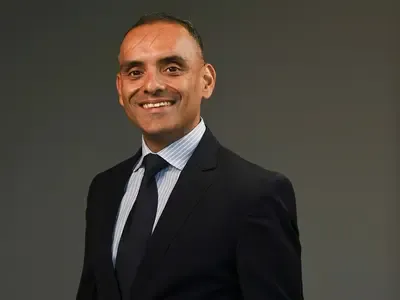
We have all had nights when sleep eludes us due to too many late-night emails, the glow of the phone or just that swirl of thoughts that won’t stop. The next morning, we feel foggy, distracted or simply off our game but a new research from MIT now shows that it is not just fatigue. Our brain literally changes when we don’t sleep and those changes are not trivial.
According to MIT researcher Prof. Laura Lewis, “When a person is sleep-deprived … the cerebrospinal-fluid (CSF) waves start to intrude into wakefulness where normally you wouldn’t see them. However, they come with an attentional trade-off, where attention fails during the moments that you have this wave of fluid flow.”
The science: Brain fluid, attention lapses and sleep deprivation
In a study published on 29 October 2025, MIT researchers examined 26 volunteers who were scanned both after a normal night of sleep and after total sleep‐deprivation. They found that when participants experienced momentary lapses in attention or “zoning out” during simple tasks, there was a wave of cerebrospinal fluid (CSF) flowing outward from the brain at that exact moment.
This is significant because the CSF cleaning process or flushing metabolic waste from the brain, normally happens during deep sleep. The study suggests that when you skip sleep, your brain tries to replicate that “clean‐up” process during wakefulness, but in doing so it sacrifices attention and alertness. The moment somebody’s attention fails is the moment this wave of fluid starts to pulse.

In plain language, being sleep-deprived does not just make you tired. It makes your brain begin to act like it is partly asleep while you are awake. You might glance at your phone and miss a message, forget a name or drift off in a meeting. These micro-failures are real, measurable and they matter.
Why this matters for your lifestyleYou might say, “Okay, this is interesting neuroscience but does it apply to me?” The answer is absolutely! Here is how the impact shows up in everyday life:
- Attention lapses: Those “oh did I just sit here for a minute without realising” moments? They’re now connected to brain fluid changes and sleep deficit.
- Reduced cognitive performance: Tasks requiring quick responses, memory recall or focus will suffer faster when sleep is poor.
- Hidden risks: Mistakes at work, unsafe driving or slower reaction times can follow from brain shifts caused by lack of sleep.
- Health consequences: Over time, chronic sleep disruption is linked to increased risk of dementia, cardiovascular disease and mood disorders (though these weren’t the focal point of the MIT study, they are supported by other literature).
What to do: Practical sleep hygiene tips that protect your brain
The good news is that you do not need a lab to flip this. Here are five research-based habits help your brain stay sharp and catch up on its cleaning cycle:
When to seek help
If you are consistently sleeping less than 6 hours/night, waking unrefreshed or experiencing daytime microsleeps, it is worth discussing with a medical professional. Sleep disorders like sleep-apnoea, restless leg syndrome or chronic insomnia can trigger exactly the kind of brain disturbance the studies uncovered.

Next time you think skipping the extra hour of sleep is no big deal, remember, your brain is still trying to work and catch up. That attentional blink in your afternoon meeting? That twinge of forgetfulness while driving? It might just be your brain’s micro-clean-up crew in action while you are meant to be thinking.
Sleep is not just a luxury. It is the maintenance your brain depends on. Make rest a priority, your brain will thank you later and your days will be clearer, sharper and safer. “It’s not just that your neurons aren’t paying attention … there’s this big change in fluid in the brain at the same time,” Prof Laura Lewis said.
If sleep is eluding you regularly, it is not just annoying. It is affecting how your brain works. Start honouring those hours. It is not indulgence. It is brain-care.
Note: The information provided in this article is for educational purposes only and is not intended as medical advice. Always consult with a healthcare professional before starting any new medication or treatment.
-
MakeMyTrip strengthens focus on UAE's year-end travel planning

-
Odisha: Ruchi Foodline Founder Sarat Kumar Sahoo Passes Away At 76

-
Americans try popular British carvery for the first time and are floored 1 thing missing

-
Wolves sack Vitor Pereira as brutal U-turn made weeks after contract decision

-
Gujarat CM Bhupendra Patel assures swift relief for farmers hit by unseasonal rains
